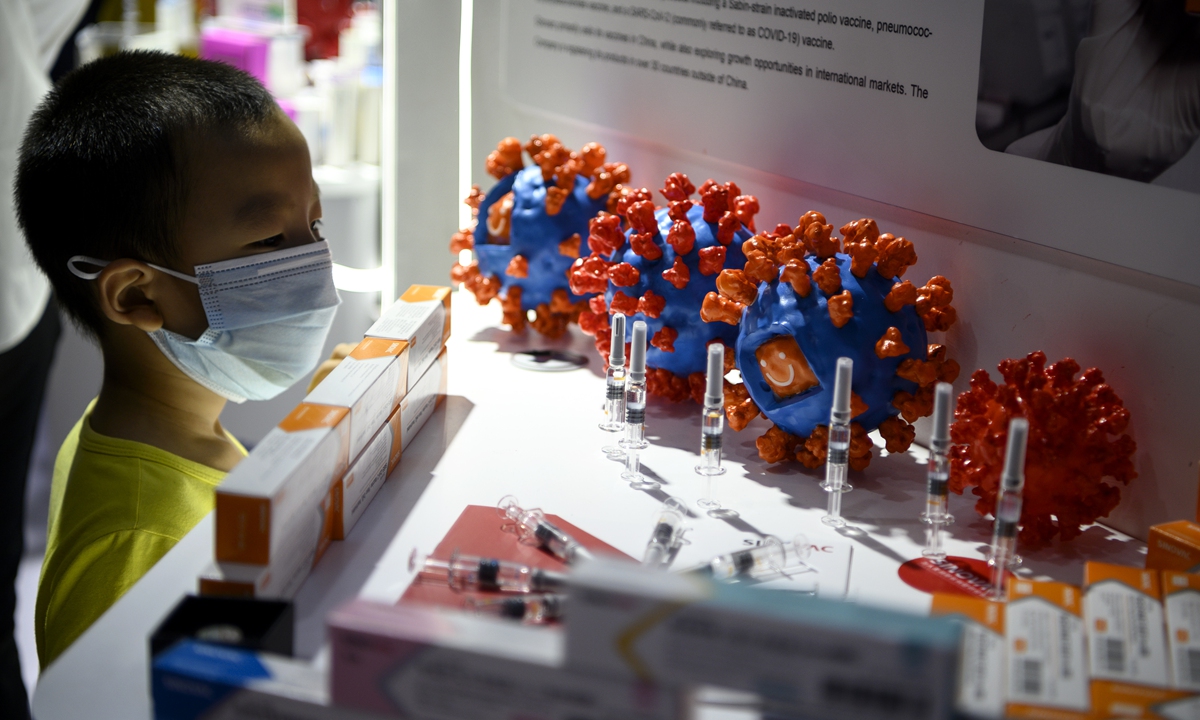China's nasal spray coronavirus vaccine set for clinical trials
By Liu Caiyu Source: Global Times Published: 2020/9/10 20:08:01

A boy looks at Sinovac Biotech LTD's vaccine candidate for COVID-19 on display at the China International Fair for Trade in Services (CIFTIS) in Beijing on Sunday. Photo: AFP
China's only nasal spray vaccine against the novel coronavirus is expected to start phase I clinical trials in November, and it is recruiting 100 volunteer recipients, meaning that all five technical routes of vaccines against the disease that China has introduced will be in clinical trials.
It is the only vaccine of its type approved by China's National Medical Products Administration. China has approved 10 coronavirus vaccines for clinical trials, media reports said.
This nasal spray vaccine is a collaborative mission between Hong Kong and the Chinese mainland that involves researchers from the University of Hong Kong, Xiamen University and Beijing Wantai Biological Pharmacy.
Leading microbiologist from the University of Hong Kong Yuen Kwok-yung told the Global Times on Thursday that the vaccine simulates the natural infection pathway of respiratory viruses to activate the immune response.
The nasal spray vaccination could generate double protection for vaccine recipients - influenza and the novel coronavirus — if it also contains influenza viruses including H1N1, H3N2 and B, Yuen noted.
The vaccine is about to enter phase I clinical trials in November and will recruit 100 volunteers in Hong Kong to participate. Yuen said it would take at least another year to finish the three clinical trials.
A Beijing-based immunologist told the Global Times on Thursday that compared with injections, a nasal spray vaccination is easier to administer. It would also be easy to mass produce and distribute as it adopts the mature influenza vaccine production technology.
The nasal spray vaccine uses live attenuated influenza vaccine; the other four technical routes China is using to develop coronavirus vaccines are inactivated vaccines, adenoviral vector-based vaccines, and DNA and mRNA vaccines. The inactivated vaccine is estimated to be the earliest to be on the market.
The immunologist said the new vaccine may not cause systemic side effects, but side effects may occur in the respiratory system such as asthma and shortness of breath. Ideally, Yuen said that scientists do not expect side effects except for minor nasal obstruction or rhinorrhea.
It is not yet clear whether immunity generated from nasal spray vaccinations will last longer than for injected vaccines.
Posted in: SOCIETY